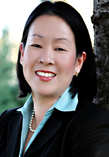Under Secretary of Commerce for Intellectual Property and USPTO Director Andrei Iancu spoke at the SMU Dedman School of Law Friday during its Tsai Leadership Lecture series. The Texas Lawbook had the opportunity to sit down with Director Iancu for a few minutes after the program.
Texas Lawbook: What unique issues does the Dallas USPTO face and how are you and Dallas USPTO Director Hope Shimabuku collaborating to address them?

Photo courtesy of the USPTO
Iancu: The Dallas office is very important for the PTO. It serves several critically important functions. First, from the PTO’s point of view, it allows us to hire great talent, who fits in really well within the PTO mission, but folks want to live in Dallas. So that’s very helpful from that point of view. Second, for broader community, equally if not more important than what I just mentioned, is that it allows Hope and her staff to reach out to so many stakeholders in the Dallas region – not just the Dallas region, throughout Texas and various states within the region. Hope and her staff have great relationships now with industries of all sorts. Earlier today, we had a meeting with the school (SMU), the professors and various industry groups from this area that was facilitated by our presence here, the fact that we know folks and we’re able to maintain those connections now.
One of the most important functions for the PTO other than examining patents and trademarks, is to support and encourage innovation and entrepreneurship because that creates job growth, and as a result, economic growth. Being present here in such a dynamic innovation ecosystem like Dallas and Texas in general allows us to better advocate and support innovation.
TLB: How does the volume of work in the Dallas PTO compare to the other PTO offices?
Hope Shimabuku (also present): We don’t track really under that mechanism, so the volume work per patent examiner and per PTAB judge is going to be about the same across the board. What we do is we track against a number of employees that we’ve hired, and that tells us what our productivity levels are eventually going to be. We’ve hired five classes of examiners, so that’s a bit over 120 examiners we’ve hired so far since we’ve opened. And we’ve hired 18 PTAB judges. So we continue to see increases, and we predict that we will continue to hire.
Iancu: Keep in mind we have approximately 270 or so PTAB judges nationwide, and the fact that in just a short period of time the Dallas office hired 18 is a meaningful percentage.

Shimabuku: Our office tends to get the largest volume of applicants. What we’re seeing is especially on the patent side, when we’re hiring patent examiners, it’s a 40:1 ratio – 40 applicants to every one patent examiner that is hired. So it’s an incredible number.
TLB: Under your leadership, what are the primary efforts you hope to achieve in collaborating with the district courts with regards to IP litigation?
Iancu: The judiciary is an independent body, so we can’t collaborate with judiciary, but the overall goal for me is to ensure predictability and consistency in the patent system. If a patent or a trademark is challenged in a district court versus it being challenged at the Patent and Trademark Office… we want to see as much as possible consistency of standards and laws. We will never have perfect consistency, but at least from an objective point of view, if we are allowed by statues, it is I think good for the economy to have consistency of laws.
TLB: What do you want IP lawyers and general counsel of companies applying for patents and trademarks to know about the agency under your leadership before they bring a matter?
Iancu: First and foremost, I think folks in general need to realize that at the PTO, we are fully focused and fully dedicated to promoting innovation and entrepreneurship. We really want to do everything that’s right to increase innovation and entrepreneurship in the United States. From that flows many different things. We are working really hard to deliver quality services to those who come before us to make sure folks are treated well and in as expedited as a manner as possible given our workload. We also want to make sure the product that issues at the end is robust and can withstand challenge down the line. We’re very much dedicated to doing that.
For those who read what you’re writing, to the extent that there are improvements that people see from their own experiences, by all means they should let us know. We are very interested in making our systems to be the best that they can possibly be, and hearing from those who come before us is critically important.
***
During Iancu’s lecture, he told a room full of law students and intellectual property practitioners about a multitude of issues the office is facing.
He pointed out that the USPTO is seeing an exponential increase in trademark applications due to the current robust economy. He said the increase in trademark applications from China has increased by 1,100 percent. He said one thing the USPTO is looking at is implementing a new rule that requires foreign applicants to retain a local U.S. lawyer for their trademark applications.
On the patent side, he said the PTO is increasing the number of second looks examiners take when reviewing an application in order to assist with the process when a patent is challenged.
President Trump nominated Iancu to his two positions as Secretary of Commerce and head of the USPTO last year. He was sworn in this February. Originally from Romania, Iancu moved to the United States with his family when he was 12.
A graduate of the UCLA School of Law, Iancu was the managing partner of Los Angeles law firm Irell & Manella before taking his current position. While there, he focused on IP litigation, handling a variety of high-profile matters in front of the USPTO, federal district and appellate courts, and the U.S. International Trade Commission.
Iancu’s Friday lecture was conducted by SMU Dedman’s Tsai Center for Law, Science and Innovation, which is a research-focused academic center that explores how law and policy affect scientific research and discovery, as well as the development and commercialization of new technologies.
